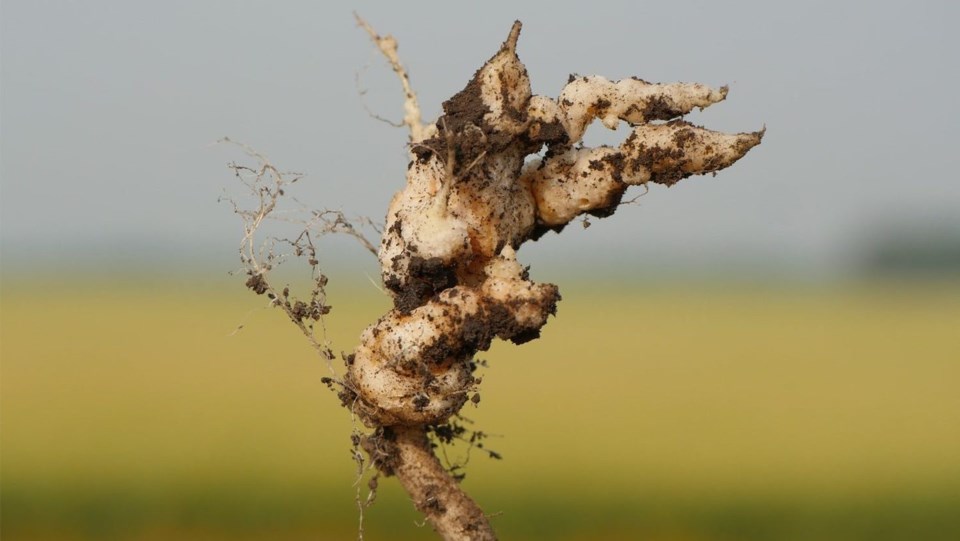Good news. Rocky View County (RVC) remains clubroot free.
Staff from the County’s Agricultural and Environmental Services department recently reported the results of their latest field surveys to the RVC Agricultural Service Board (ASB).
According to the report presented to the ASB, County ag staff inspected 540 canola fields this past summer and found no evidence of the soil borne crop disease.
That is incredibly good news, confirmed RVC Agricultural Services officer Laura Poile.
“Currently there are no fields infected with clubroot in Rocky View County,” Poile explained. “Rocky View County staff complete an inventory of all canola fields in June and inspections for the disease begin in July … Canola is highly susceptible to clubroot, as is mustard and cole crop vegetables. This disease is capable of significantly reducing yield and quality, and may destroy a crop if infestation levels are high.”
Because clubroot is a soil borne disease, it generally becomes endemic to the fields where it infests and then begins to reoccur year after year. That is why prevention is key, said Poile.
“Education is a key component to preventing the spread of clubroot,” she said. “When clubroot was first identified in the province, Rocky View County worked collaboratively with the Alberta Canola Producers Commission, the Canola Council of Canada and neighbouring municipalities to develop an inspection and identification protocol.”
“We continue to provide support to producers by way of sharing information on identification, monitoring, and best practices for prevention and limiting the spread of clubroot,” she added.
The crop disease has been spreading southward from central Alberta since at least 2003. What makes clubroot unique is it is classified as a protist disease, meaning the pathogen which causes it is classified as an organism with plant, animal and fungal characteristics.
The disease takes hold of the roots of plants and causes large galls to form. These galls act as a nutrient sinks, and take away vital nourishment sources from the host plant, causing it not to thrive.
According to Alberta Agriculture and Irrigation, symptoms of the disease in infected plants will vary depending on the growth stage of the crop when infection occurs. Early infection at the seedling stage can result in wilting, stunting and yellowing of canola plants in the late rosette to early podding stage. Infection that occurs at later stages may not show plant wilting, stunting or yellowing. However, infected plants will ripen prematurely, and seeds will shrivel. Thus, yield and quality (oil content) are reduced.
Sometimes it is difficult to tell when a crop is infected with clubroot as some of these symptoms can be attributable to other types of diseases or signs of adverse climate conditions. The best way to tell for sure is to dig up some sample plants from the suspect field and inspect the roots for the telltale galls.
The fact that Rocky View County still remains clubroot free, said Poile, is a testament to RVC’s prevention programs and local farmers taking that prevention message to heart in their agricultural practices.
“It is encouraging,” said Poile. “Producers are also educated on the disease and as good stewards of the land they have management plans to reduce their risk. This includes planting clubroot resistant varieties, cleaning equipment and crop scouting.”


